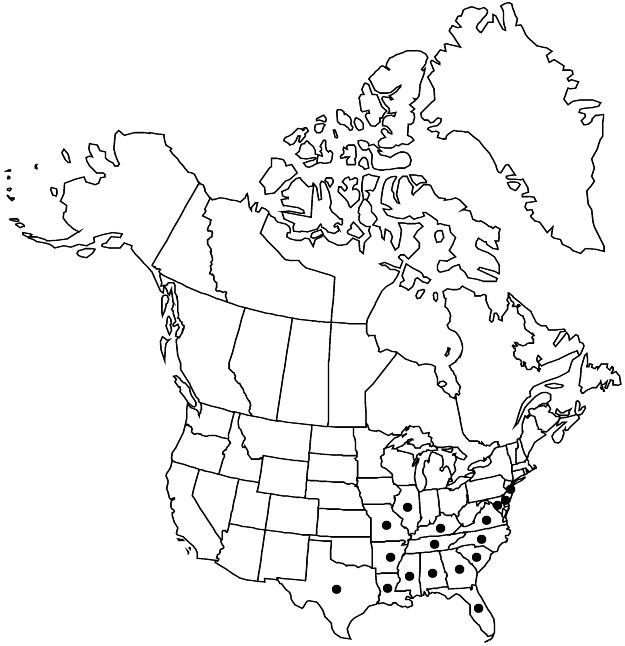Nyssa biflora
Fl. Carol., 253. 1788.
Trees, 10–30 m, base often buttressed in larger individuals, proximal limbs spreading to slightly drooping, crown irregular; bark irregularly fissured; twigs glabrous or puberulent. Leaves: petiole 7–10 mm; blade oblanceolate to narrowly elliptic, rarely ovate, 3.7–7.2 × 1.6–3.5 cm, subcoriaceous, base cuneate to rounded, margins usually entire, rarely coarsely dentate distally, apex obtuse to acute, abaxial surface glabrous or puberulent (primarily along veins), adaxial surface glabrous. Inflorescences: peduncle 3.2–5.5 cm, sparsely hairy; staminate (1–) 2–8-flowered, pistillate and bisexual 1–3-flowered. Staminate pedicels present. Flowers: ovary glabrous. Drupes usually black, sometimes to blue, glaucous, ovoid, 7–14 mm, smooth; stone 7–9 mm, with several low, rounded longitudinal ridges.
Phenology: Flowering spring.
Habitat: Swamps, flatwood depressions and ponds, bogs, wet streamheads, seepage slopes, often in sites with standing water during part of the year or with organic soils saturated year-round, less often in mesic forests.
Elevation: 0–100(–200) m.
Distribution

Ala., Ark., Del., Fla., Ga., Ill., Ky., La., Md., Miss., Mo., N.J., N.C., S.C., Tenn., Tex., Va.
Discussion
Selected References
None.